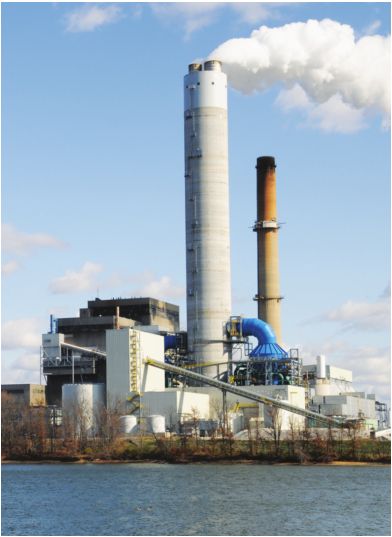Cleanest coal plants due to close
That Vistra Energy would downsize its coal-fired power plant fleet in Illinois wasn’t a surprise.
But environmentalists aren’t happy with the announcement last month that the company will close four of eight plants by year’s end and leave the dirtiest ones in operation. Three hundred workers will be unemployed after plant closures in Havana, Canton, Hennepin and Coffeen.
State Sen. Andy Manar, D-Bunker Hill, also isn’t pleased. The state, he says, should have insisted that the dirtiest plants be closed instead of ordering Vistra to reduce coal-fired power generation and allowing the Texas-based company to pick which plants should be shuttered to meet the reduction target.
“They purchased the plants knowing that this (stricter pollution regulation) was going to happen,” Manar says. “The Pollution Control Board could have directed that the plants with the least amount of emissions close first. That didn’t happen. That’s because Vistra, I would say, made the case to the Pollution Control Board that they’re too expensive to run. … This is about profits for Vistra.
“I have shared my thoughts with the governor.”
Since purchasing the eight plants from Dynegy in 2018, Vistra has been negotiating with the state on a plan to reduce emissions. The state Pollution Control Board last fall rejected a plan by Gov. Bruce Rauner’s administration and came up with its own idea to cut emissions by a larger amount than the state Environmental Protection Agency had proposed. That plan died with the election of J.B. Pritzker, who proposed a new plan that would reduce emissions by an even greater amount. In June, the Pollution Control Board, with the governor’s blessing, approved a plan requiring Vistra to retire 2,000 megawatts of coal-fired generating capacity by Jan. 1. Under the plan, the company could decide which plants would close.
From the start, environmentalists sensed trouble, warning months ago that, while the reduction in emissions is welcome, the way that the company might do it was worrisome.
The company’s oldest, dirtiest plants are the cheapest to operate. After the Joint Commission on Administrative Rules adopted the plan last month, the company quickly announced that the cleanest plants will close while the ones that spew the most pollution will remain in operation.
“This aging fleet has changed corporate hands three times in the last several years and instead of responsibly investing in modern pollution controls and long-term plans…Texas energy corporations have routinely sought delays from state regulators in reducing pollution and have chosen to abruptly shutter units it knew were risky investments upon purchase,” Jack Darin, Sierra Club Illinois director, wrote in a prepared statement reacting to the Vistra announcement. “While these companies repeatedly claimed financial hardship it has simultaneously brokered expensive deals and lucrative mergers for Houston shareholders.”
Curt Morgan, Vistra president and chief executive officer, issued a written statement, calling the closures “inevitable” due to economic conditions and “the changing regulatory environment.”
“By far, the hardest decisions we make in our business are those that significantly impact our people,” Morgan said. “As always, we will do right by those who are impacted by this announcement.”
In a press release, Vistra said it hopes that the legislature will approve measures to convert shuttered coal plants into solar energy facilities. Sen. Manar said the company shouldn’t count on a state subsidy to build solar facilities at closed coal-fired plants. “I think that’s going to be a heavy lift for Vistra,” Manar said. “I think they should do it anyway. They have land. They have land that’s connected to the electricity grid. What’s the need for a subsidy?” During an Aug. 2 conference call with analysts, Morgan downplayed chances for significant energy legislation to pass the General Assembly during the upcoming veto session. Responding to a question from an analyst, the CEO said that media accounts of Commonwealth Edison lobbyists writing checks to a former political operative for House Speaker Michael Madigan who was fired after being caught up in a sexual harassment scandal likely will reduce chances for legislation that involves ComEd or Exelon, ComEd’s parent company.
“(W)e think it could have an impact on whether something – broader energy legislation – gets done in Illinois in the veto session,” Morgan said. “I mean, I think it’s hard in my mind to see that legislators are going to embrace something that would include ComEd and Exelon significantly when they’re sort of wrapped up in this cloud of controversy. Just politically, it feels like it could be difficult.”
Manar said that Vistra’s decision to close its cleanest plants has left “a sour taste in the mouths of many,” and he agreed with Morgan that the veto session likely won’t produce any big-ticket energy bills. That, he said, is more about the nature of veto sessions, where legislators tend to concentrate on smaller matters, than anything else.
Contact Bruce Rushton at brushton@illinoistimes.com.